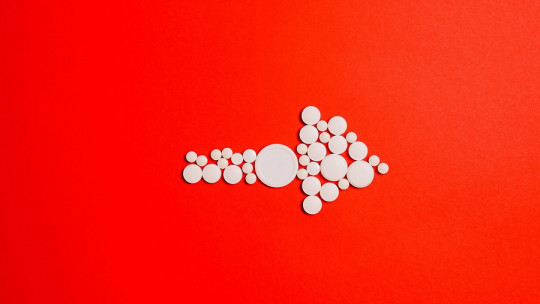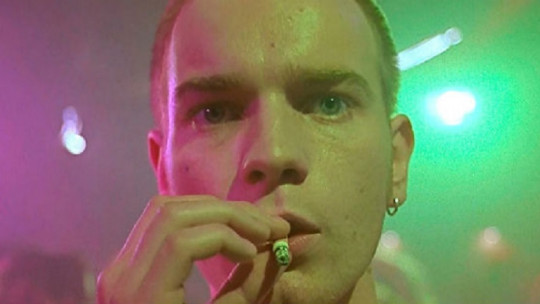
Polydrug addiction is a reality that shows the extent to which addictions have the capacity to infiltrate all areas of a person’s life if they are not treated in time.
This phenomenon, which consists of developing dependence on various drugs, makes the person who suffers from it become much more vulnerable both physically and mentally.
However, drawing a line between addiction to a drug and addiction to more than one substance is not an easy task, because once dependence has begun to consolidate, it can be oriented towards a wide variety of psychoactive elements. And this is because the more accustomed a human being is to consuming a drug, the more prone he is to falling into certain psychological traps that lead him further and further into polydrug addiction
What is polydrug addiction?
Polydrug addiction is the abuse and dependence on two or more drugs in which the person feels that they lose the ability to control their actions This can be reflected either in the combined use of drugs (taking them at the same time at a given time, to combine their effects) or in the interspersed consumption of these (leaving several hours of difference between the consumption of each one).
In all cases, the mixture of psychoactive substances with addictive potential without a medical prescription has a very harmful effect on the person’s physical and mental health. This wear and tear is usually more intense than if a single type of drug were consumed in the same quantity, since the combination of substances enhances the negative effects of each of the products used.
Besides, Although people who develop polydrug addictions are aware of this fact, that is not enough reason for them to permanently leave their addiction behind ; The behavioral pattern on which their drug use is based does not depend on whether they make informed decisions or not, but on other psychophysiological aspects that go beyond words. Either they ignore the harmful nature of the drug mixture, or they try not to think about it, since great difficulty arises in controlling their behavior.
This is why polydrug addiction is such a common and frequent phenomenon among those who consume drugs; There are even researchers who consider it one of the stages of maximum consolidation of addictive disorders, outlining a “consumption ladder” that goes from experimentation with a single drug to the constant use of psychoactive substances of all types.
And if addictions depended on the information people have, each step would be a line that the person knows they should not cross, but that is not the case. However, it is estimated that in Western countries, approximately half of people with a drug addiction are addicted to several substances at the same time, and the majority of those who suffer from dependence on alcohol, opioids, cannabis or, especially cocaine and heroin.
Of course, That does not mean that it is impossible to overcome a drug addiction problem once polydrug addiction has been established ; What happens is that it is more complicated, and intervention by health professionals becomes more urgent than ever.

Psychological traps of consolidation of polydrug addiction
These are the psychological mechanisms that act as a “slippery slope” that leads to polydrug addiction.
1. The boundary between healthy and unhealthy is blurred
The combined or interspersed use of drugs makes each of these substances trivialized, that passes through another element of everyday life, blending in with the rest of everyday objects that surround the person.
This causes the emotional reaction of danger and/or caution promoted by awareness campaigns against drug use to disappear; The person has less reason to think about whether the use of these substances is good or bad for their health, since the concept of “drug” is normalized and stripped of most of its negative connotations.
2. It is normalized in consumption of a single substance
If the behavioral dynamics driven by polydrug addictions in their earliest stages already normalize the consumption of several substances at the same time, it does even more with the consumption of a single type of drug
For example, it makes drinking alcohol without snorting cocaine in the same day seem like something “healthy”, something that practically does not count, because compared to the idea of taking several things at the same time, in the eyes of those who already have an addiction problem almost doesn’t even seem notable.
3. Acceptance of the use of drugs with opposite effects appears
Another psychological trap associated with polydrug addiction is the idea that it is acceptable to use drugs that apparently “cancel each other out” (although that’s not actually true). For example, the use of a substance that depresses the activity of the nervous system, such as benzodiazepines, to counteract the previous intake of a psychostimulant such as cocaine.
4. Self-deception arises from trying to treat one addiction by promoting another
On the other hand, it is also common for polydrug addicts to deceive themselves assuming that by taking a drug they are helping to get rid of an addiction to another drug even if they do not do so following medical instructions or using prescribed medications.
5. The person surrounds himself with social environments with easy access to various drugs
Finally, people with addictions become accustomed to investing their free time primarily in relationships with other people who are also addicted. This means that, due to the availability of various types of drugs caused by exposure to other people with similar problems, the use of different substances be seen as a way of integration into a group, or practically a social ritual
Are you looking for addiction treatment?
If you are looking for psychotherapy or medical treatment and detoxification services for drug addiction, contact our team of professionals.
From CITA Clinics We offer both outpatient care and intervention through admissions in our residential module, accompanying patients through all the stages involved in overcoming an addictive disorder.
We specialize in the treatment of addictions with or without substances, and in our residential facilities you can find a quiet and fully equipped environment in which to carry out all types of activities while the therapy lasts: library, swimming pool, gym, equine therapy area, and further. You can find us in Dosrius, Barcelona.








